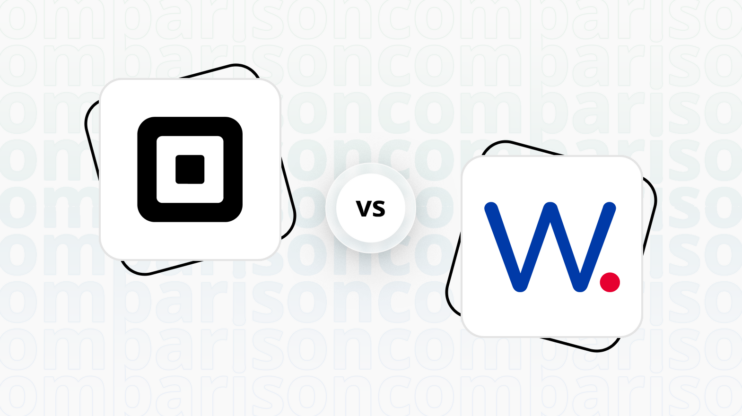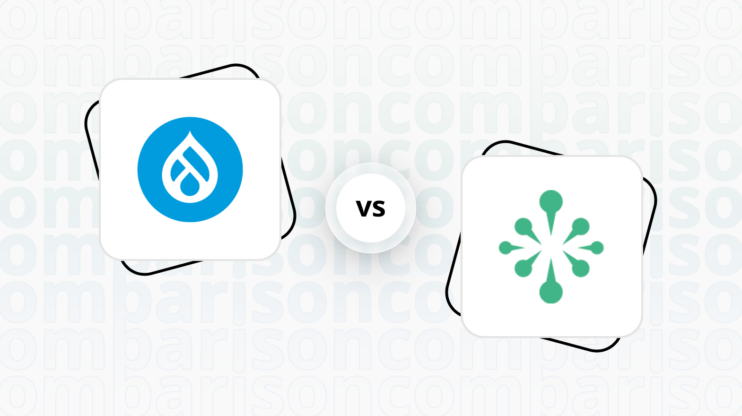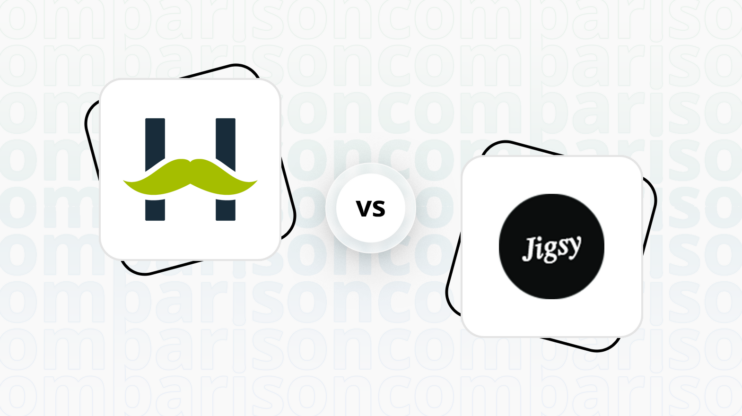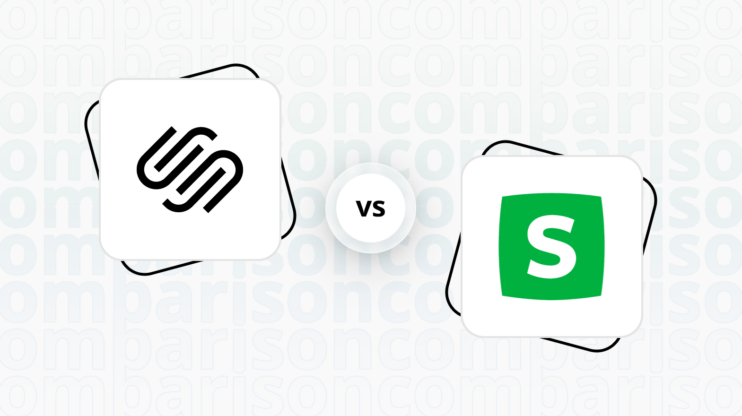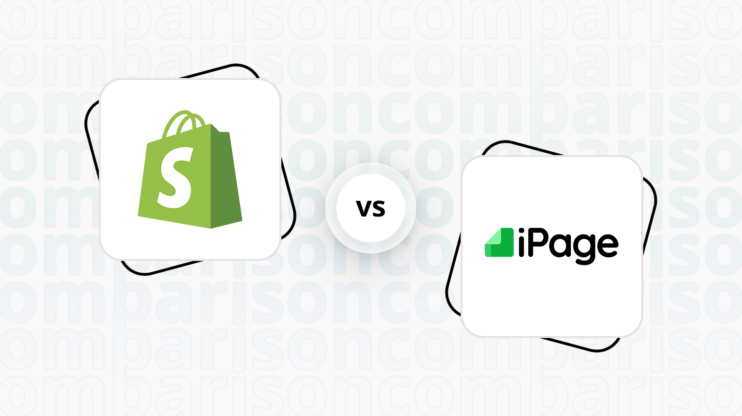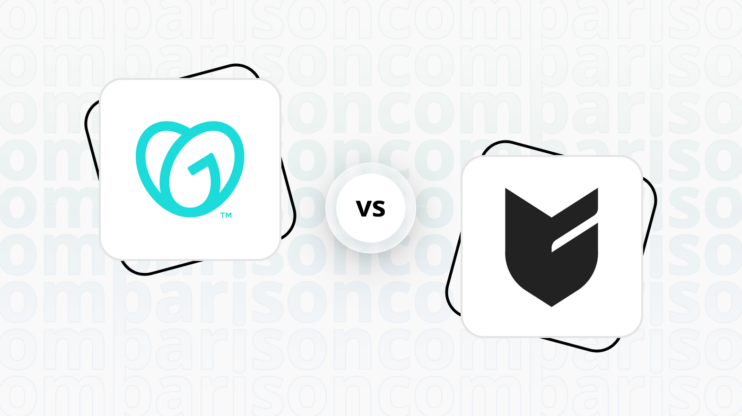Final verdict
Shopify and SmugMug cater to different needs, making them suitable for distinct user bases.
-
Shopify (Overall Grade: 8.1/10)
is a comprehensive ecommerce platform ideal for businesses looking to scale their online stores. It offers robust ecommerce features, advanced marketing tools, and strong security measures. Shopify’s extensive range of integrations and plugins, along with its superior hosting quality and AI capabilities, make it a powerful choice for serious online retailers. When comparing Shopify vs SmugMug, Shopify stands out for its ecommerce prowess and scalability. -
SmugMug (Overall Grade: 6.3/10)
is tailored for photographers and creatives who want to showcase and sell their work online. It provides customizable templates optimized for high-quality images, robust photo protection features, and basic ecommerce capabilities. SmugMug excels in ease of use and user management, making it a great choice for visual artists. In the Shopify vs SmugMug comparison, SmugMug is the preferred option for those focused on photography and visual content.

|

|
|
|---|---|---|
|
Design functionalities & templates |
8.2 |
7.1 |
|
Ease of use |
7.5 |
7.8 |
|
Ecommerce |
9.2 |
7.3 |
|
Website Editors |
7.9 |
7.3 |
|
Product testing options |
8.1 |
7.4 |
|
Price |
8.2 |
7.8 |
|
Hosting quality |
9.0 |
5.0 |
|
Website speed optimization |
7.8 |
5.5 |
|
Plugins and integrations |
8.7 |
6.2 |
|
Marketing features |
8.8 |
3.8 |
|
Customer support |
8.6 |
7.9 |
|
Security |
9.0 |
6.0 |
|
AI capabilities |
7.9 |
0 |
|
User Management |
6.5 |
7.2 |
Best for ecommerce
 9.2
9.2
 7.3
7.3
Verdict
: Shopify is the superior choice for comprehensive ecommerce needs, while SmugMug is tailored for photographers and creatives looking to sell their work online.
-
Shopify
: Shopify excels in providing a robust and scalable ecommerce platform. It offers a wide range of tools for product listing, payments, and order fulfillment, making it ideal for businesses aiming for growth. With features like advanced inventory management, multi-channel selling, and detailed analytics, Shopify stands out in the ecommerce sector. Its extensive library of apps further enhances its functionality, offering unique features like Augmented Reality for an enhanced customer experience. Shopify’s ecommerce score: 9.2. -
SmugMug
: SmugMug is designed specifically for photographers and creatives who want to showcase and sell their work online. It offers customizable templates optimized for high-quality images and robust photo protection features. While it includes ecommerce capabilities like digital downloads, product pricing, and tax handling, it lacks the depth and scalability of Shopify’s offerings. SmugMug’s ecommerce score: 7.3.
Best for informational & business websites
 6.8
6.8
 7.5
7.5
Verdict
: SmugMug is better suited for informational business websites, especially for photographers and creatives, while Shopify, though capable, is more tailored for ecommerce.
-
Shopify
: Shopify, primarily an ecommerce platform, can be used for informational sites but may feel overly complex for such purposes. Its robust tools are designed for online stores, making it less ideal for simple informational needs. Shopify scores 6.8 in this category. -
SmugMug
: SmugMug excels in creating visually appealing, professional-grade photography websites. Its user-friendly interface and customizable templates make it a strong choice for photographers and creatives. SmugMug scores 7.5, making it a better option for informational business websites compared to Shopify.
Detailed comparison
Design functionalities & templates
Design FunctionalitiesRepresents how well each platform allows for creative design and customization of websites.Score Components:
- Template Variety (30%): Range and quality of design templates.
- Customization (30%): Flexibility and options for design alterations.
- User Interface (20%): Ease and intuitiveness of the design process.
- Responsiveness (10%): Adaptability to different devices and screen sizes.
- Innovation (10%): Unique design features and tools.
 8.2
8.2
 7.1
7.1
Winner: Shopify.
If you’re looking for a platform that offers more templates and design options, Shopify is the preferred choice.
Shopify’s templates are sleek and professional, ideal for ecommerce sites. They offer a sophisticated look with a focus on online stores. While the free template selection is not large, Shopify’s premium theme store provides a variety of industry-specific options, offering advanced features for a strong brand presence.
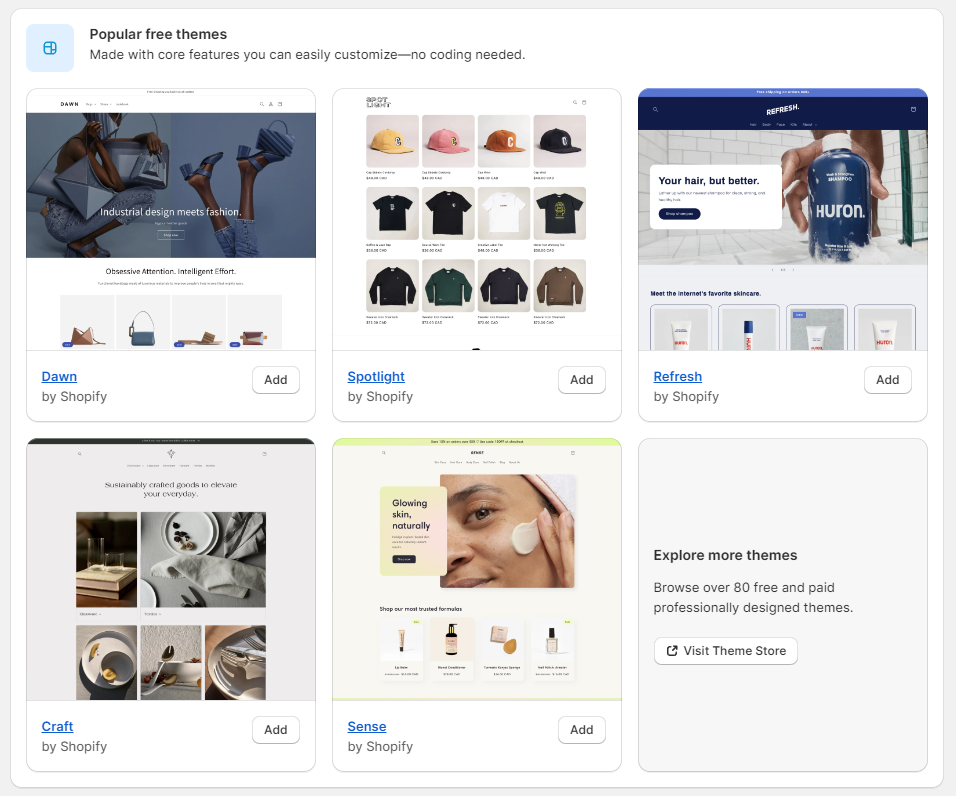
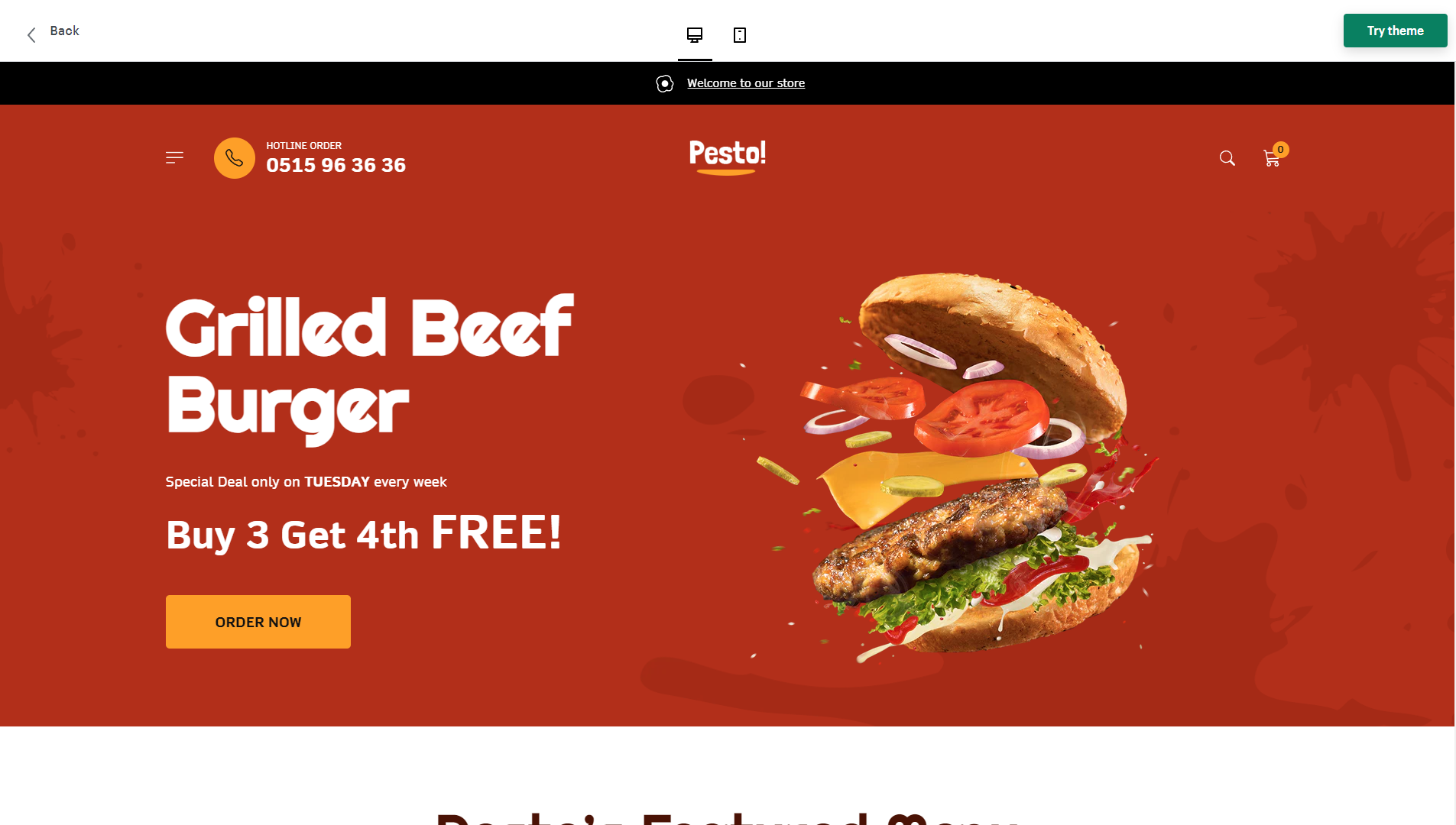
Compared to Shopify, SmugMug offers a variety of templates and designs catering to the diverse needs of photographers and visual artists. Users can choose from an extensive collection of customizable templates, ensuring their website or portfolio reflects their unique style and brand. The platform continuously updates its design offerings, incorporating the latest trends and user feedback, to provide a rich selection of modern, sleek, and professional layouts.
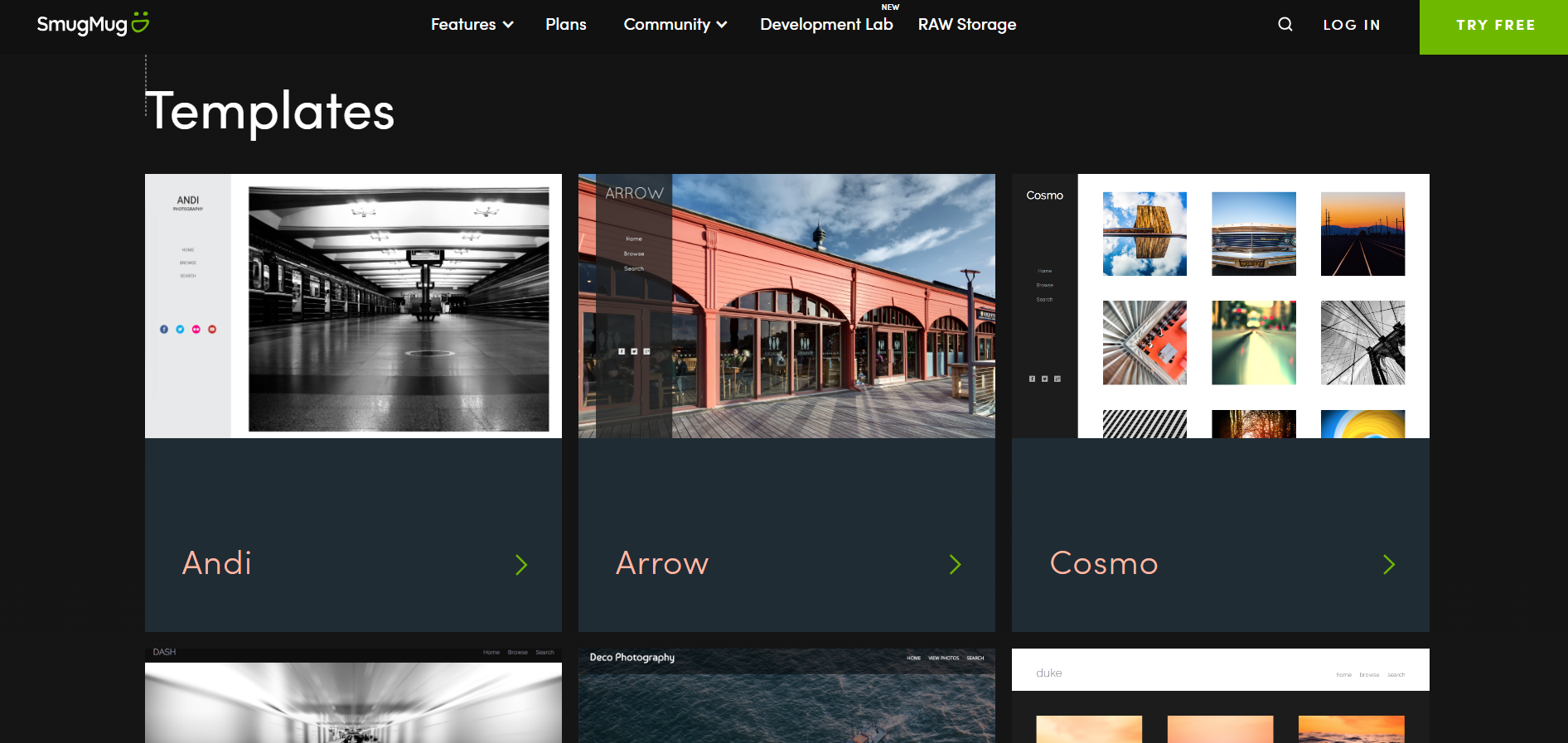
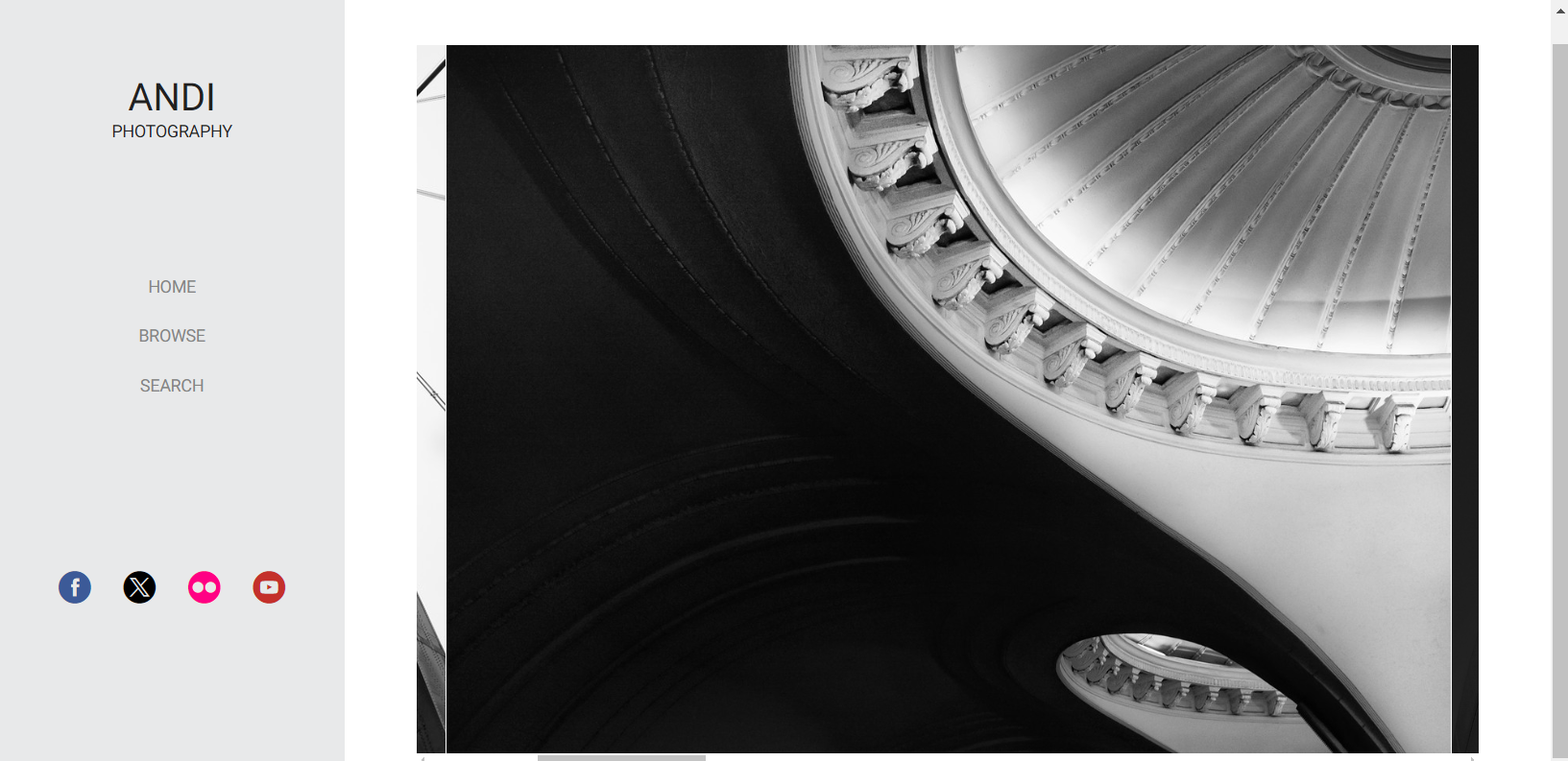
Get a head start on website creation with AI
Create a custom website tailored to your business needs 10X faster with 10Web AI Website Builder!
Ease of use
Ease of useReflects the platform’s overall user-friendliness.Score
Components:
- Learning curve (40%): Quickness and ease of getting started.
- Interface design (30%): Simplicity and intuitiveness of layout.
- User guidance (20%): Quality of tutorials and support.
- Flexibility (10%): Adaptability to various user skills.
 7.5
7.5
 7.8
7.8
🏆 Winner: SmugMug
. Scoring a close 7.8, SmugMug edges out Shopify’s 7.5 in terms of ease of use. SmugMug’s user-friendly interface caters to both beginners and professionals, making it easy to create and customize photo galleries. However, it’s worth noting that SmugMug’s focus on photography and visual content means it may not be as versatile for other types of websites.
Learning Resources
🏆 Winner: Shopify
. Both platforms offer solid learning resources, but Shopify goes a step further with its extensive library of articles, tutorials, webinars, and video courses, making it easier for users to learn and adapt.
For ecommerce
EcommerceMeasures the platform’s effectiveness in supporting online business activities.Score Components:
- Ecommerce themes and templates (20%): Variety and design of templates.
- Product management (25%): Ease of managing and organizing products.
- Payment options (25%): Variety and convenience of payment methods.
- Ecommerce features (20%): Features for managing an ecommerce store.
- Integration (10%): Compatibility with external e-commerce tools and services.
 9.2
9.2
 7.3
7.3
Shopify and SmugMug cater to different ecommerce needs. Shopify is a comprehensive ecommerce platform, offering a range of tools for product listing, payments, and order fulfillment. It’s ideal for businesses that need a robust and scalable online store. On the other hand, SmugMug is designed for photographers and creatives who want to sell their work online. It offers a range of customizable, easy-to-use templates optimized for displaying high-quality images and provides robust photo protection features.

|

|
|
|---|---|---|
|
Ecommerce themes and templates |
8.2 |
8.0 |
|
Product page customization |
8.5 |
6.5 |
|
Payment processing and commissions |
8.8 |
6.0 |
|
POS capabilities |
8.1 |
0.0 |
|
Payment gateways |
9.5 |
5.0 |
|
Product numbers |
9.0 |
9.0 |
|
Additional ecommerce features |
9.1 |
6.5 |
Shopify ecommerce features:
- Comprehensive store builder
- Shopify Payments and other gateways
- Advanced inventory management
- Multi-channel selling
- Abandoned cart recovery
- Detailed analytics and reporting
SmugMug ecommerce features:
- Digital Downloads
- Product Pricing
- Tax handling
- Discounts and Coupons
- Multiple Currencies support
Ecommerce themes & templates
Shopify offers about 150 modern responsive themes for creating a virtual storefront, ensuring a good look on both desktop and mobile devices. While some themes are free, others cost between $170 to $380. In contrast, SmugMug’s templates are designed with ecommerce in mind, providing built-in shopping cart functionality.
Product page customization
Shopify allows for three options per product, totaling 100 unique variations. While Shopify offers titles, descriptions, and image galleries with zoom effects, customization options like adding ribbons, size charts, and wishlists are not as straightforward. However, Shopify distinguishes itself with additional features through its extensive library of extra apps, offering functionalities like reviews, Facebook stores, eBay item importers, and a unique Augmented Reality feature for an enhanced customer experience.
SmugMug, on the other hand, prioritizes photography, offering a platform tailored for photographers to showcase and sell their work. It provides enough functionality to detail digital and printed photography products effectively, enabling users to sell online with ease.
Payment processing
Shopify offers payments with typical charges of
2.9% + 30¢
per online transaction on basic plans, and lower fees for higher-tier plans. However, it adds extra fees for using other payment gateways. Shopify Payments is Shopify’s own payment processing gateway. It allows merchants to accept credit card payments directly on their store without having to integrate third-party payment providers. This simplifies the payment process, reduces transaction fees, and streamlines the handling of finances.
SmugMug has a unique approach to payment processing. Payment processing for your sales is managed through your account settings, where you must complete a Tax & Payment form to set up your payment preferences. Your earnings are calculated as 85% of the markup on print prices or download sales, with SmugMug retaining 15% to cover various costs. Payments are made via ACH direct deposit for U.S. users or PayPal for international users, processed on the first business day after the 7th of each month for profits accumulated through the end of the previous month.
Website Editors
Website EditorsEvaluates the platforms’ website building and editing capabilities.Score Components:
- Customization tools (40%): Range and power of editing features.
- Editor usability (30%): User experience within the editor.
- Design flexibility (20%): Freedom in layout and design changes.
- Update and maintenance ease (10%): Simplicity of updating and maintaining the site.
 7.9
7.9
 7.3
7.3
🏆
Winner: Shopify
. Shopify, with a score of 7.9, excels in providing a streamlined, ecommerce-focused editing experience. It’s particularly beneficial for users who prioritize efficient management of online stores. The editor is straightforward, making it easy to add products, manage inventory, and set up payment methods. Shopify’s editor is optimized for sales and business growth, with built-in tools specifically designed for ecommerce businesses.
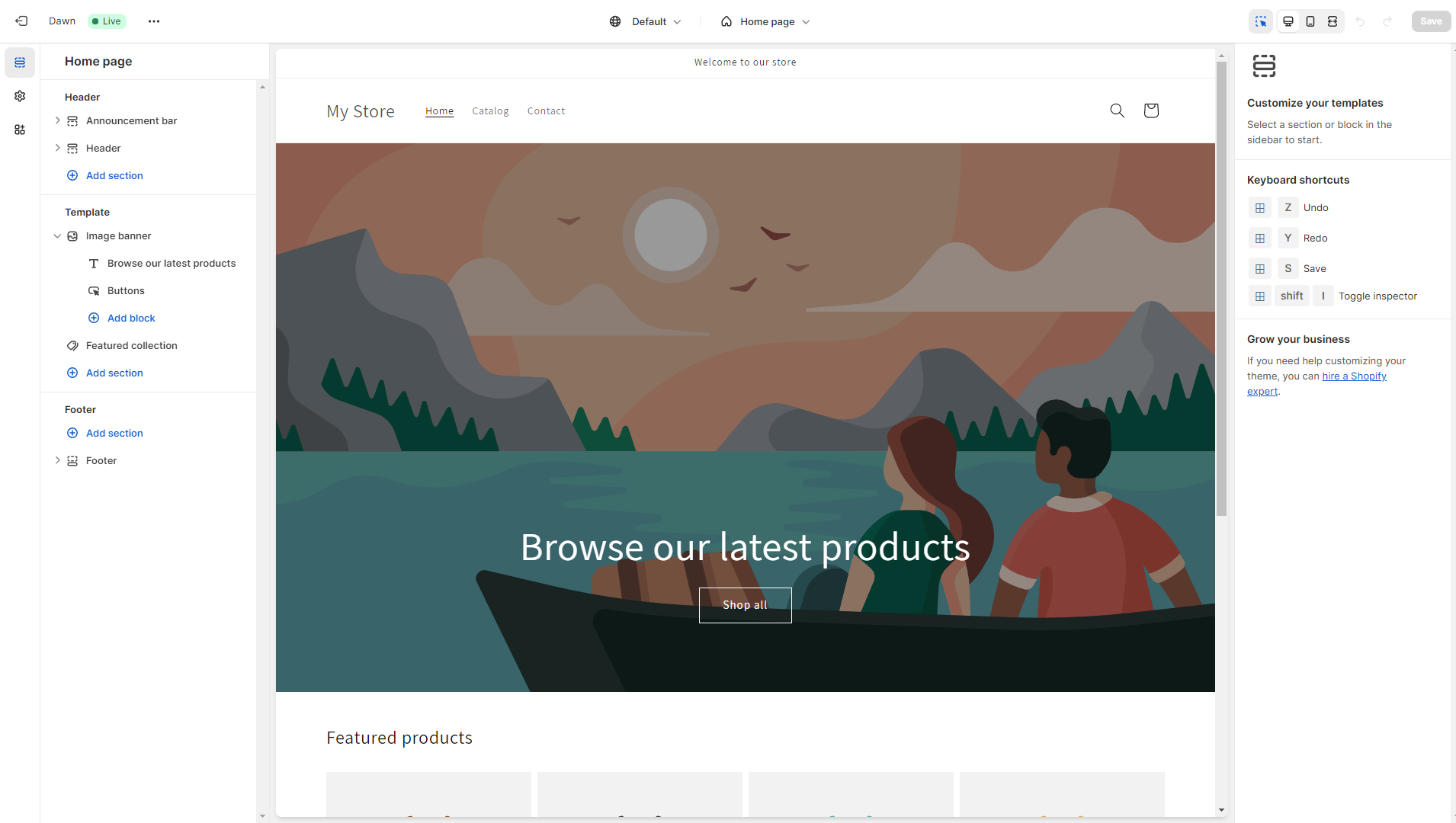
SmugMug’s editor, scoring 7.3, offers a user-friendly interface that allows for the creation of visually appealing, professional-grade photography websites without the need for coding knowledge. Users can customize their site by choosing from a variety of templates, adjusting layouts, and incorporating their own branding elements like logos and colors. The editor also supports easy uploading, organizing, and showcasing of high-quality images, with robust privacy and security settings to protect content. Additionally, SmugMug provides tools for selling prints and digital downloads directly from the website, making it a comprehensive platform for photographers looking to display and monetize their work online.
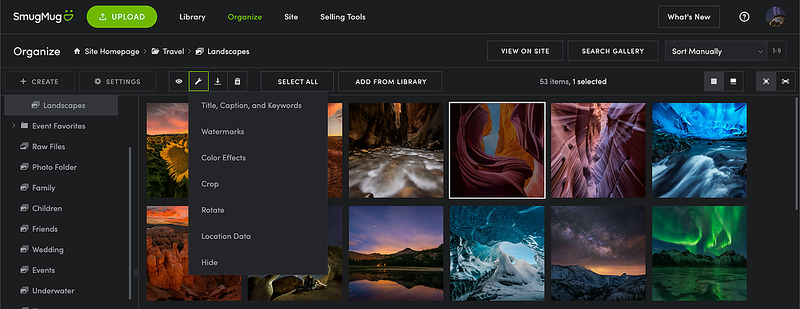
Mobile editor/app
 8.0
8.0
 7.5
7.5
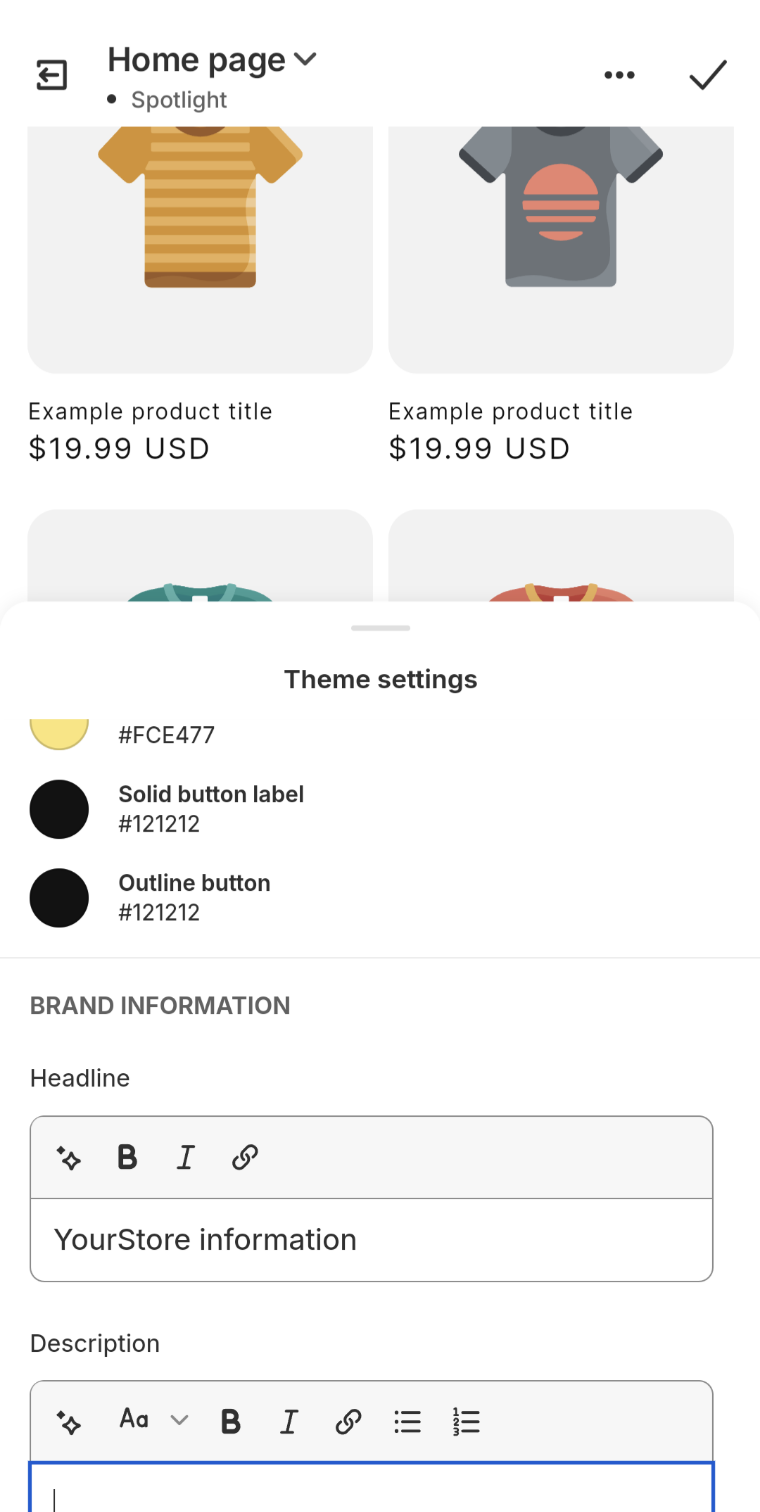
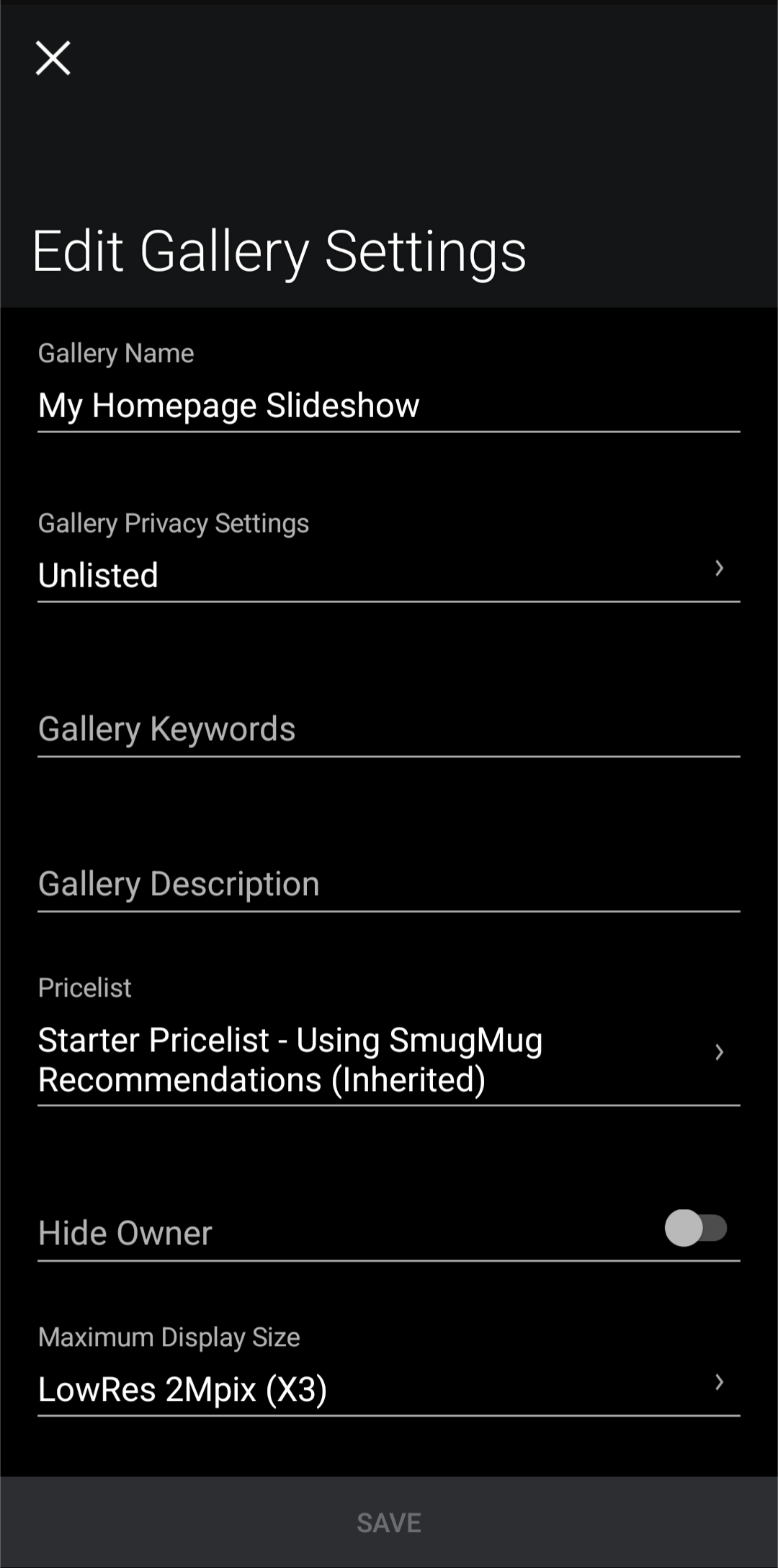
🏆
Winner: Shopify
. Both Shopify and SmugMug offer mobile apps for managing your website, but they cater to different needs and skill levels. Shopify’s mobile app includes a user-friendly mobile theme editor that allows users to customize their online store website directly from their mobile device. This feature enables the addition, removal, editing, and rearrangement of content on the store’s website, offering convenient on-the-go adjustments to the store’s appearance and layout.
On the other hand, SmugMug’s mobile app is more limited in its capabilities. It allows users to add new photos and edit descriptions, but it does not support layout changes on the website. This makes Shopify’s mobile app more versatile and user-friendly, earning it a higher score in this category.
In summary, Shopify receives a higher rating due to its versatile and user-friendly mobile app, while SmugMug’s app is more limited in its capabilities.
Product testing options
Product Testing OptionsAssesses the options for trying out platform features before commitment.Score Components:
- Trial quality (40%): Extent and usefulness of the trial or free version.
- Feature accessibility (30%): How many features are available to test.
- Trial duration (20%): Length of the trial period.
- Ease of transition (10%): Smoothness of moving from trial to paid plans.
 8.1
8.1
 7.4
7.4
Overall Result
:
Shopify Wins
. Shopify scores 8.1, offering a 14-day free trial with access to all features, including premium ones. SmugMug, scoring 7.4, also provides a 14-day free trial with access to premium features, but does not offer a money-back guarantee.

|

|
|
|---|---|---|
|
Free Plan |
No | No |
|
Trial Duration |
14 days | 14 days |
|
Testing Premium Features |
All features during free trial |
During the free trial |
|
Money Back Guarantee |
Yes |
No |
Price
PriceLooks at the cost-effectiveness and value for money of each platform.Score Components:
- Plan value (40%): What each pricing tier offers.
- Transparency and clarity (30%): Clearness of pricing structures.
- Flexibility of plans (20%): Range of options to suit different budgets.
- Hidden costs (10%): Additional expenses not included in the plan.
 8.2
8.2
 7.8
7.8
Shopify and SmugMug have different pricing structures, reflecting their different focuses. Shopify is more expensive but offers a comprehensive ecommerce solution, while SmugMug is more affordable and tailored for photographers and creatives.

|

|
|
|---|---|---|
|
$10-$20 |
No offering at this amount. |
Power ($15.00/month): Best for the photographer who wants their entire photo catalog safe and shareable on their own terms. Unlimited storage, Seamless Lightroom integration. Value for price: 6.5 |
|
$20-$40 |
Shopify Basic ($29/month): Unlimited products, 2.9% + 30¢ card fee with Shopify payments, Extra 2% gateway fee without Shopify Payments, Abandoned cart recovery, Automated sales tax, Digital products, POS Integration, 2 staff accounts. Value for price: 8.0 |
Portfolio ($31.00/month): Best for the photographer who wants to start selling photos and keep their archive organized perfectly. All Power plan’s features, plus 21 premade templates, prints and digital downloads sales, Custom Watermarks, Payment integration for credit cards and PayPal, Integrated cart and checkout experience, Sales statistics. Value for price: 8.0 |
|
$40-$80 |
Shopify Standard ($79/month): Lower card fees (2.6% + 30¢), Gift cards, Professional reports, 5 staff accounts. Value for price: 8.5 |
Pro ($45.00/month): Adds to Portfolio with custom price lists and coupons, Platform access for assistant or second shooter, Full control over client downloads, Branded packaging and thank you notes for print sales, coupon creator. Value for price: 8.5 |
|
$200+ |
Advanced Shopify ($299/month): Lowest card fees (2.49% + 30¢), Advanced report builder, Real-time carrier shipping, Up to 15 staff accounts Value for price: 8.8 |
Venture (Starts with $500/month): All Pro features, plus dedicated support contacts and account representative for all Smugmug needs, Design, workflow, and organization consultation and support. |
location. As a result in rare cases the prices displayed here can differ from the ones you see on their
websites.
Hosting quality
Hosting
qualityExamines the reliability and performance of the hosting solutions.Score Components:
- Uptime (40%): Consistency and reliability of website availability.
- Speed (30%): Loading times and performance.
- Bandwidth and storage (20%): Sufficiency of resources provided.
- Data centers (10%): Quality and distribution of hosting infrastructure.
 9.0
9.0
 5.0
5.0
🏆
Winner: Shopify
Shopify’s proprietary cloud-based hosting, 99.99% uptime guarantee, and 5 global data centers make it a reliable choice for hosting. SmugMug, while offering hosting, does not provide detailed information about their hosting features, uptime, or data centers, making it difficult to compare. Shopify’s transparency and robust hosting features earn it a higher rating.

|

|
|
|---|---|---|
|
Do they offer hosting? |
Yes, included in all paid plans |
Yes, but no detailed information on their hosting features |
|
Data Centers: |
5 globally: USA (Ashburn, Virginia; Santa Clara, California), Canada (Toronto, Ontario), Ireland (Dublin), and Singapore |
SmugMug does not provide any information about their data centers |
|
Type of hosting: |
Proprietary cloud-based hosting |
SmugMug does not provide any information about their hosting types |
|
Uptime: |
99.99% |
SmugMug does not provide any information on their uptime statistics |
|
Uptime Guarantee: |
Yes, 99.99% |
Yes, 99.9% |
Website Speed Optimization
Website Speed OptimizationEvaluates optimization of website loading timesScore Components:
- PageSpeed Score (30%): Google’s score indicating performance optimization.
- Loading Time (30%): The average time until a website is fully interactive.
- Mobile Optimization (15%): Optimization effectiveness for mobile devices.
- Resource Optimization (15%): Optimizing images, scripts, and other heavy resources.
- CDN Usage (10%): Use of CDN to enhance speed across geolocations.
 7.8
7.8
 5.5
5.5
🏆 Winner: Shopify
Both Shopify and SmugMug prioritize website performance and page speed, but Shopify’s more detailed strategies and higher score give it the edge in this comparison.

|

|
|
|---|---|---|
|
Focus |
App optimization, Google AMP |
Mobile Responsive design |
|
Performance Tools |
Google Lighthouse, PageSpeed Insights |
Not specified |
|
Key Strategies |
App efficiency, Theme optimization |
Mobile Responsive design |
|
Load Times |
Varies widely, dependent on optimization |
Varies widely, depending on optimization |
|
Page Speed Scores Range |
Scores vary; influenced by apps, images |
Varies widely, depending on website complexity |
|
Core Web Vitals Improvement |
Emphasis on LCP, FID, CLS improvements |
Not specified |
Shopify places a strong emphasis on website performance and page speed. Its approach to enhancing site speed includes app optimization by removing unneeded app code, conditionally loading apps, avoiding immediate pop-up displays, and incorporating app functionality directly into themes. This approach leverages Shopify’s fast servers and CDN network to boost load speed. Shopify also suggests utilizing Google AMP for faster mobile page loads, although with some design compromises. Analysis of three Shopify sites showed a range of Shopify speed scores from 14 to 75, Google PSI scores from 8 to 80, and load times varying from 10.6 seconds to 2.3 seconds. Continuous maintenance and optimization are essential for keeping Shopify stores fast.
SmugMug, on the other hand, focuses on mobile responsive design for speed optimization. However, it does not provide specific information on performance tools or Core Web Vital improvements. The load times and page speed scores for SmugMug websites vary widely, depending on the level of optimization and the complexity of the website.
Get a head start on website creation with AI
Create a custom website tailored to your business needs 10X faster with 10Web AI Website Builder!
Plugins and integrations
Plugins and integrationsMeasures the range and effectiveness of additional plugins and integrations.Score Components:
- Variety of options (40%): Range of available add-ons.
- Integration smoothness (30%): Ease of integrating plugins into the site.
- Quality of plugins (20%): Functionality and reliability of the options.
- Custom integration capabilities (10%): Support for custom or third-party integrations.
 8.7
8.7
 6.2
6.2
🏆 Winner: Shopify.
Shopify, with a score of 8.7, offers a wide range of ecommerce-focused plugins and integrations, making it a powerhouse for adding functionalities that scale with your business. On the other hand, SmugMug, scoring 6.2, provides integrations with several photo-hosting services, enhancing its functionality for photographers. However, Shopify’s breadth and depth, especially for online stores, give it the upper hand.
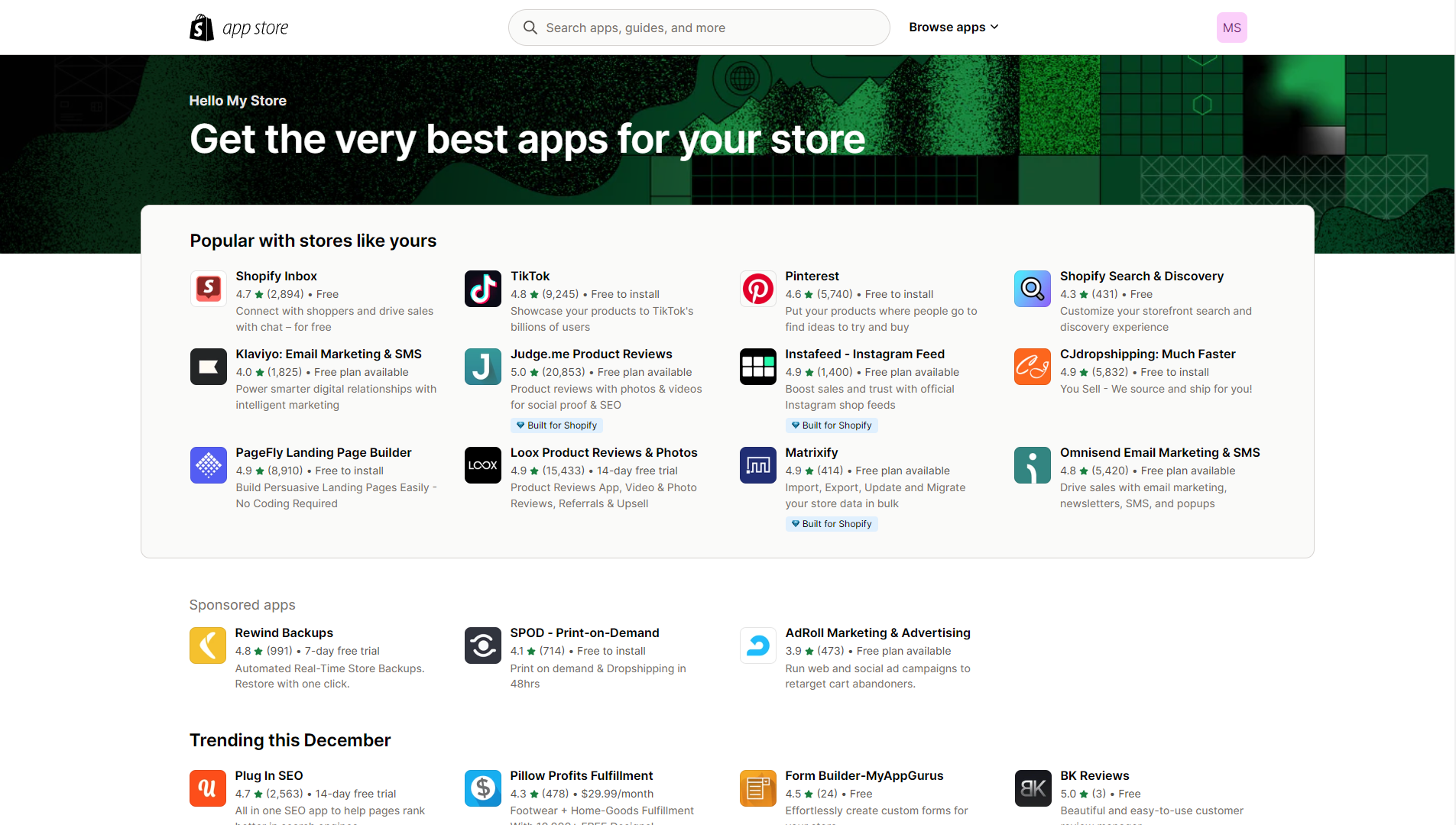
Marketing Features
Design FunctionalitiesRepresents how well each platform allows for creative design and customization of websites.Score Components:
- Template Variety (30%): Range and quality of design templates.
- Customization (30%): Flexibility and options for design alterations.
- User Interface (20%): Ease and intuitiveness of the design process.
- Responsiveness (10%): Adaptability to different devices and screen sizes.
- Innovation (10%): Unique design features and tools.
 8.8
8.8
 3.8
3.8
🏆
Overall Winner: Shopify
. Shopify stands out for its comprehensive set of marketing tools, especially in email marketing, blogging, and ads and promotions. SmugMug, while offering basic SEO tools, social media integration, and analytics and reporting, lacks in email marketing, blogging, and ads and promotions.
| Marketing Features |

|

|
|---|---|---|
|
SEO Tools |
|
Basic |
|
Email Marketing |
|
|
|
Blogging |
|
|
|
Social Media Integration |
Advanced integration for selling directly on social platforms |
|
|
Analytics and Reporting |
Detailed analytics for in-depth insights |
Google Analytics integration |
|
Ads and Promotions |
Google Ads integration; sophisticated ad campaign management |
|
Customer Support
Customer supportEvaluates the quality and availability of support options.Score Components:
- Response time (40%): Speed of support responses.
- Support quality (30%): Effectiveness and helpfulness of the support.
- Availability (20%): Range of support channels (phone, chat, email).
- Resource richness (10%): Quality of self-help and educational materials.
 8.6
8.6
 7.9
7.9
🏆 Winner: Shopify
. Comparing Shopify vs SmugMug, Shopify takes the lead with its 24/7 customer support available through chat, email, and phone. Shopify’s extensive community forums and clear tutorials further enhance the support experience, making it easier for users to find solutions quickly. Additionally, Shopify offers a dedicated program for enterprise-level businesses, including a dedicated account manager and priority support.
SmugMug, on the other hand, provides customer support primarily through email and chat, available 364 days a year. While SmugMug’s support is responsive and accessible, phone support is limited to higher-tier business subscriptions. For enterprise customers, SmugMug offers specialized support with hands-on account representatives and tailored assistance, ensuring a high level of service for professional photographers and businesses. However, the lack of 24/7 support and limited phone support options place it behind Shopify in this category.
Security
SecurityLooks at the platforms’ security measures and data protection.Score Components:
- Data protection (40%): Safeguards for user and customer data.
- SSL and encryption (30%): Implementation of secure connections.
- Compliance (20%): Adherence to industry security standards.
- Regular updates (10%): Frequency of security updates and patches.
 9.0
9.0
 6.0
6.0
🏆
Winner: Shopify
. Shopify’s security measures are more comprehensive and robust, with a focus on data encryption, two-factor authentication, and a dedicated incident response team. This makes it a safer choice for users who prioritize security.
SmugMug, while offering privacy settings and content protection, does not provide as much detailed information about its security measures. However, it does take privacy and security seriously, implementing strict privacy settings and controls that allow users to manage who can access their content. For more detailed information, users are advised to consult SmugMug’s official documentation and support pages.
AI Capabilities
AI capabilitiesMeasures the effectiveness of AI-driven features and tools.Score Components:
- Automation efficiency (40%): Impact of AI on streamlining processes.
- Personalization (30%): AI-driven customization for users or customers.
- AI-Assisted design (20%): Role of AI in website design and functionality.
- Data analysis (10%): Use of AI in interpreting user data and analytics.
 7.9
7.9
 0
0

|

|
|
|---|---|---|
|
Personalized Design |
Shopify AI Builder offers personalized design suggestions |
|
|
SEO Optimization |
AI-driven recommendations for better search engine visibility |
|
|
Customer Behavior Analysis |
Advanced analytics to understand customer preferences |
|
|
Sales Predictions |
AI-powered sales forecasting tools |
|
|
Inventory Management |
AI tools to assist in efficient inventory handling |
|
|
Content Generation |
AI assistance in creating and optimizing site content |
|
🏆 Winner: Shopify
. Shopify, with a score of 7.9, utilizes AI mainly to enhance the ecommerce experience. Its AI features focus on customer behavior analysis, personalized shopping experiences, inventory management, and sales predictions.
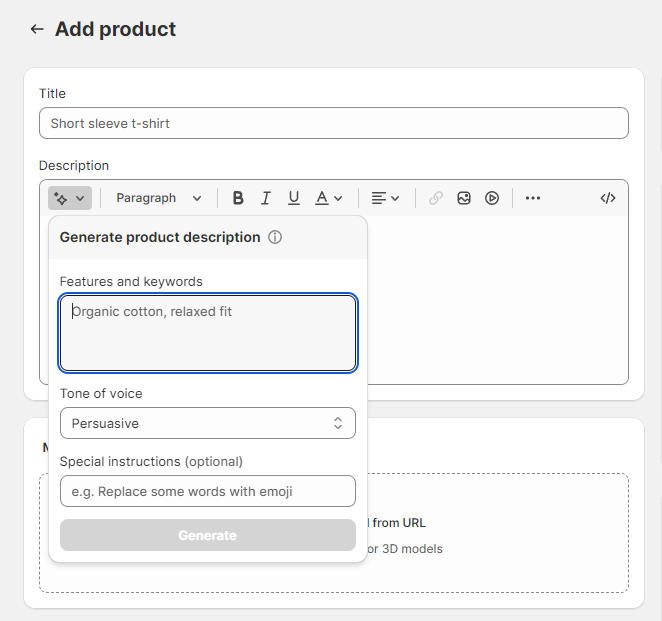
SmugMug, on the other hand, does not have any AI capabilities. This is a significant disadvantage, especially when compared to Shopify’s extensive AI features.
User Management
User ManagementAssesses the platforms’ capabilities in managing user roles, permissions, and accessibility.Score Components:
- Role Customization (40%): Flexibility in creating and defining user roles and
permissions. - Ease of Management (30%): User interface and tools for managing users.
- Access Control (20%): Effectiveness of access control measures for different user
levels. - Scalability (10%): Ability to manage a growing number of users efficiently.
 6.5
6.5
 7.2
7.2
🏆 Winner: SmugMug
. Both Shopify and SmugMug offer different approaches to user management.
-
Shopify enforces staff account limits based on plans, ranging from 2 to 15, with Shopify Plus offering unlimited
accounts. Collaborators with limited access are also an option. - SmugMug allows the primary account holder full control over the account, with the ability to add additional users through “Shared Account Management” for Portfolio and Pro level accounts. These additional users can be given various roles with different permissions, enabling them to manage or edit the website without full access to billing or account settings.
Shopify User Roles and Access Levels:
| Role | Description | Access Highlights |
|---|---|---|
| Store Owner | Full control over store | Manage products, orders, discounts, payments, apps, settings. Create and manage staff accounts. |
| Staff | Configurable access by owner |
Add/edit products, manage orders, fulfill orders, manage customers, update content. Access level can be customized by the owner. |
| Collaborator | Limited access for external partners | View and manage specific sections like blog or product categories. Cannot access full store settings. |
SmugMug User Roles and Access Levels:
| Role | Description | Access Highlights |
|---|---|---|
| Owner | The primary account holder who has full control over the site. | Complete access to all features, settings, content management, and billing. |
| Admin | Users granted almost the same level of access as the owner, minus some critical billing or account settings. | Manage content, order prints, access to stats, and settings except for account and billing changes. |
| Contributor | Users who can upload and manage content in specific galleries. | Upload content to assigned galleries, edit captions, and keywords. Limited access to settings. |
Additional Features

|

|
|
|---|---|---|
|
SSL Certificate |
|
|
|
Custom Domain |
|
|
|
Free Custom Domain Included |
|
|
|
International Domains |
|
|
|
Mobile Responsive |
|
|
|
Page Speed |
|
|
|
Website Builder Mobile App |
|
|
|
Convert a Website To An App |
|
|
|
Website Analytics |
|
|
|
Multilingual Sites |
|
|
|
Multiple Users |
|
|
User Feedback
Shopify’s slightly higher rating on G2 Crowd can be largely attributed to its specialization in ecommerce. Its comprehensive features, ease of use, and robust customer support cater specifically to online businesses, leading to high user satisfaction among those seeking a dedicated ecommerce solution.
Users appreciate SmugMug for its reliability, ease of use, and the platform’s ability to securely host and share high-resolution photographs and videos. Highlights include seamless mobile device syncing, excellent gallery features for showcasing assets, and robust customization options minus JavaScript support. However, some users desire improvements in facial recognition technology for automatic album creation, expanded asset management capabilities beyond primarily photos, and more advanced search functionalities. Concerns about rising costs and the platform’s intuitiveness were also mentioned. Overall, SmugMug is valued for its central storage solution, privacy features for client photos, and its ability to simplify file sharing and photo sales.
The making of this blog
We followed a clear, step-by-step process to write and research this article.
FAQ
Which platform is better for photographers, Shopify or SmugMug?
Can I sell digital downloads on both Shopify and SmugMug?
How do Shopify and SmugMug compare in terms of ease of use?
Which platform offers better customer support, Shopify or SmugMug?
Are there any significant differences in the pricing structures of Shopify and SmugMug?
Which platform is better for creating a visually stunning website?










